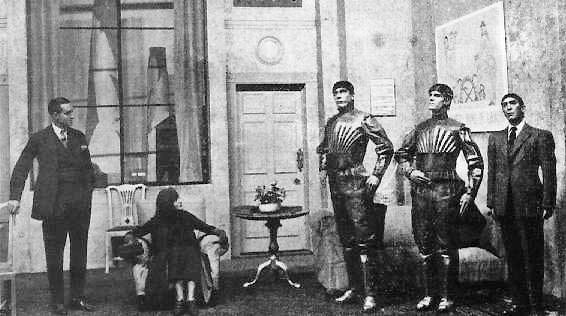Content Warning
Čapek was opposed to all forms of totalitarianism, including both communism and fascism. As a young man, he worked as a journalist, in Prague, where he wrote on topics such as nationalism, totalitarianism and consumerism. As a teen, he was expelled from his high school for participating in an unauthorized student club, which he later described as a "very non-murderous anarchist society." In 1938, he had the chance to leave for the UK, but refused to leave Czechoslovakia, where the Nazi Gestapo had named him "public enemy number two." He died later that year from pneumonia.
#workingclass #LaborHistory #karelcapek #sciencefiction #scifi #robot #serf #slavery #totalitarianism #satire #play #playwright #theater #film #bladerunner #rebellion @bookstadon

